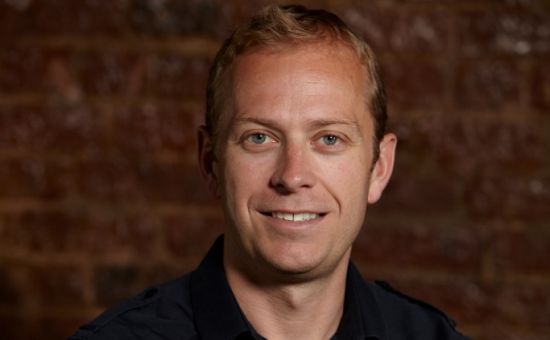
5 Minutes With… Wayne Arnold

Wayne Arnold’s path has not exactly beenyour usual adland career trajectory. Before turning to marketing, he tried his hand at a legal career, but it was far too stuffy and stifling. So in 1998 he ditched the law and co-founded the agency Profero with his brother Daryl. Since then it’s blossomed into a global digital success story and he’s bounced from Europe to the US and now leads the agency from Singapore. This year Profero merged with Lowe, resulting in a digital-forward, clued-up and muscular international presence. LBB’s Laura Swinton caught up with Wayne to find out more.
LBB> Before you were in advertising and marketing, I believe you were practicing law. That’s quite a jump! How did that leap come about?
WA> I think it is probably a better question to ask ‘how the hell did I get into law in the first place?’ I am slightly dyslexic, terrible at remembering names and dates, and my English writing skills always fell into the ‘room for improvement’ box.
Needless to say, my ambitions to be an LA lawyer did not last long. Quite frankly I found the pace at which the industry moved stifling, and some of its moral values unpleasant.
Saying that, it was indirectly because of that experience I discovered the first ever Bloomberg machine in Asia, and so my first exposure to the Internet. This I did find exciting, and fancied a bit of the action. It’s safe to say inspiration can come from the most unusual places sometimes!
LBB> And how has your experience with the law influenced your approach to marketing (if it has at all!)?
WA> Really in the grand scheme of things very little, although it did teach me to read documents very carefully. So maybe improved my attention to detail?
LBB> You launched Profero in 1998 with your brother – how would you recommend mixing business and family?
WA> Starting anything, whether it is a business or band with anyone is an important and tricky decision. The advantage with a member of family, or a very close friend, is that there is an immediate short hand. You cut out a lot of politics or awkward moments and start focusing on the areas that really matter which is how businesses move forward. So yes, I would recommend it.
LBB> Why did you decide to hook up with the IPG group early this year, after a good 16 years of independence? What do you hope Lowe and Profero can offer each other?
WA> As you can imagine, that is a question I have been asked a lot over the past year. Many things in business are about timing.
We are all incredibly proud of what we achieved with Profero in those 16 years. After all, how many people can claim that they helped build a truly global business, touching every major market in the world from an initial investment of only $1K USD? And possibly more importantly, pioneering the industry along the way, while having a lot of fun.
At the same time you need to spot opportunities and next areas of growth. It became clear to us that the world’s largest companies were starting to look for true global Marcom businesses with digital at their core. In our view no one had built that yet, and with Michael [Wall, CEO, Lowe and Partners] and the team at Lowe and Partners we can. That is both exciting and challenging, something as a team we thrive on.
LBB> And how have things changed at Profero since the merger?
WA> In many some ways very little has changed on a day-to-day basis. We still have the original core team, clients, principles and values we believed in for 16 years.
Because we are treating this as a merger to build something bigger than the sum of the parts, of course debates are taking place on how to move the business forward.
But what has really grown is the scale we are now working at, and the speed at which we are growing the business both financially and geographically.
LBB> You’re a bit of an unusual beast in the international ad industry, as a Global CEO who is based in Asia-Pacific. Why did you make that decision and what does it say about the ambitions and values of Lowe Profero as a whole?
WA> Good question. The simple answer is I got really annoyed with very senior peers in the US and UK saying “Asia is really important, it is the future”, then sitting back in their smoking chairs and not really even trying to do anything to understand it. I even heard one very senior executive of a major holding group call Asia “The Far East”. Really? Where the hell is that?
So rather than talking about it, we wanted to put our money where our mouth was and I moved out to Singapore. I think I am still the only Global CEO in our industry to do so, time will tell if there is a reason for that.
I think what this shows is that we have never been scared to take risks, and act on what we believe in. For example we thought media, creative and tech should be in-house, so we did it when everyone was separating the two out. We were very nearly the first digital agency to enter China under the WTO agreement, although I have to give credit to Sir Martin for beating us by a day! This is just a part of a longer list that shows our ambitions to be confident in our offering.
LBB> Which local markets in the Asia-Pacific region are particularly exciting you at the moment and why?
WA> I tend to look at APAC through two lenses. Firstly the markets that are rapidly establishing themselves and maturing in digital, China and Japan being the obviously standouts. Then the next generation where digital spend is well below 10 per cent but about to explode, the entire South East Asia region; Indonesia, Thailand and Vietnam are prime examples. We are seeing 44 per cent growth in the region, which I think is pretty amazing especially when you consider how large our base already is.
A lot of businesses struggle in the region especially when it comes to talent, which naturally restricts their growth. We are fortunate to have been in the region for over a decade and are very proud of the fact that almost all our senior talent in the region is home-grown. This means we have amazing consistency across the business; something that is rare in a region where high talent churn is still the norm.
LBB> Obviously we can’t mention Asia without talking about mobile… I’m interested in your perspective on the recent Apple iPhone 6 launch as things like the near field communication, iPay etc. generated a lot of excitement in the States and Europe, but they seemed to be a lot of things that have been quite commonplace in certain Asian countries for some time now.
WA> It has been ‘the year of mobile’ for as long as I have been working. For years I have been talking about forgetting the idea of mobile in favour of simply thinking about screens.
We are nearly at the stage where all screens will be able to do everything, from payments to viewing content. The question then becomes what screen for what situation?
Are you walking down the street? Then choose a screen that fits in your pocket or handbag. Watching a football game? Then a bigger one that fits on your wall is probably better.
What is interesting is that for over two years now whenever we show a user experience we start with the first visual or wire frame on mobile, as that is the reality in this market. Asia will lead and show the rest of the world the way, which is really exciting.
LBB> In terms of young digital talent, I’ve spoken to many people who feel that the ad/marketing industry is facing some real competition from, say, the Googles, Facebooks, tech start-ups, games developers. From your experience, is this a problem? If so, is it global or just true for certain markets?
WA> Wow, hope you were not expecting a quick answer to this this one. if you don't mind I would like to answer this question more broadly in terms of the entire marketing industry, including the likes of Google. You’re right it is a massive issue, and there are three core problems that I see.
Firstly, marketing is not seen as a true profession. If you ask most university leavers what their professional aspirations are, you will hear lawyer, doctor, accountant and even banker before marketer.
We need to combat this by clearly demonstrating that the work we do drives billions of dollars of revenue for our clients. The truth is, we have the power to affect share prices more than ‘traditional’ professions, which are mainly protective rather than creative.
Secondly, we do not represent society and in fairness this is not just our industry’s problem. In most markets we are woefully under-represented in most major ethnic groups outside the classic Mad Man stereotype of middle class white men and women. It’s pretty obvious that an industry comprised of members of less than 20 per cent of the global population cannot realistically understand and communicate to the other 80 per cent. We need to address this at all levels through education in schools and onto university systems.
Lastly, we are terrible at nurturing talent. The hard reality for people reading this by the time you are 40, unless you have made it to the C suite in an agency you will be too expensive and probably out of a job. Tough love!
Most industries have strong career development plans, on-going education and development qualifications, however the marketing industry does not.
In my view we need industry-wide courses and exams equal to those in accounting and law. We need to develop talent that are ‘diagonal thinkers’ as good at reading a spreadsheet as judging a creative idea. These ‘diagonal thinkers’ are the future business leaders, the future CEOs. Let’s face it, the more marketers who are at the top the better it is for the entire industry.
LBB> As for new technologies, is there anything in particular that is getting you excited at the moment or that you think is really going to change things up for brands?
WA> It is less about any particular technology more about existing technology getting into the next billion people on the planet. These are the billion people who currently live in poverty, can’t get access to the latest educational thinking and are trapped in the poverty gap. Give these people technology to improve their lives, and then wow that is exciting!













